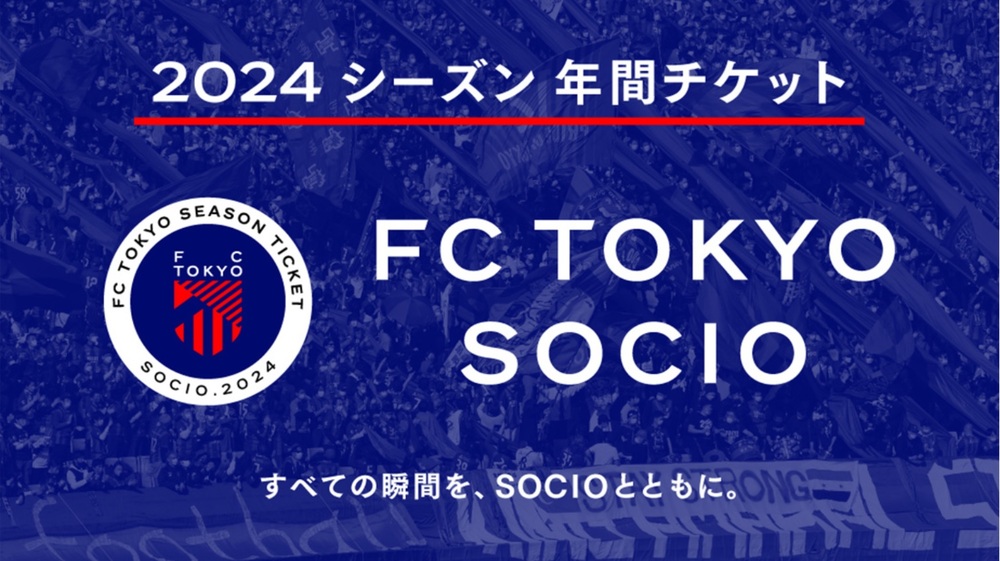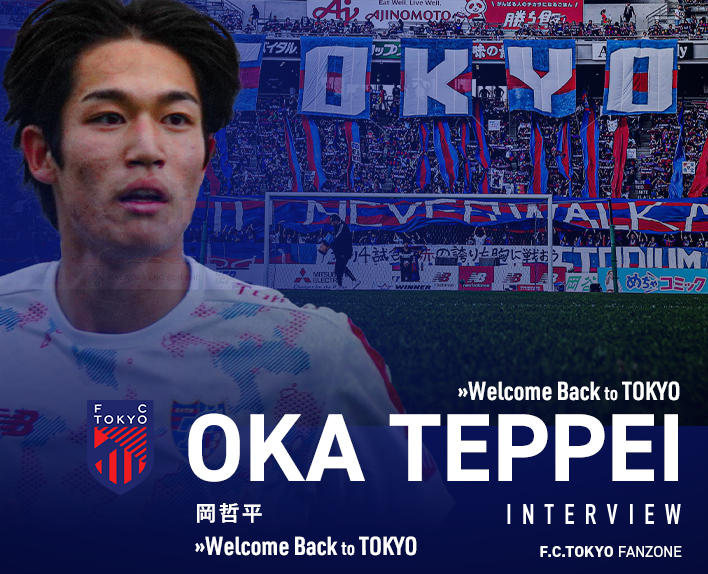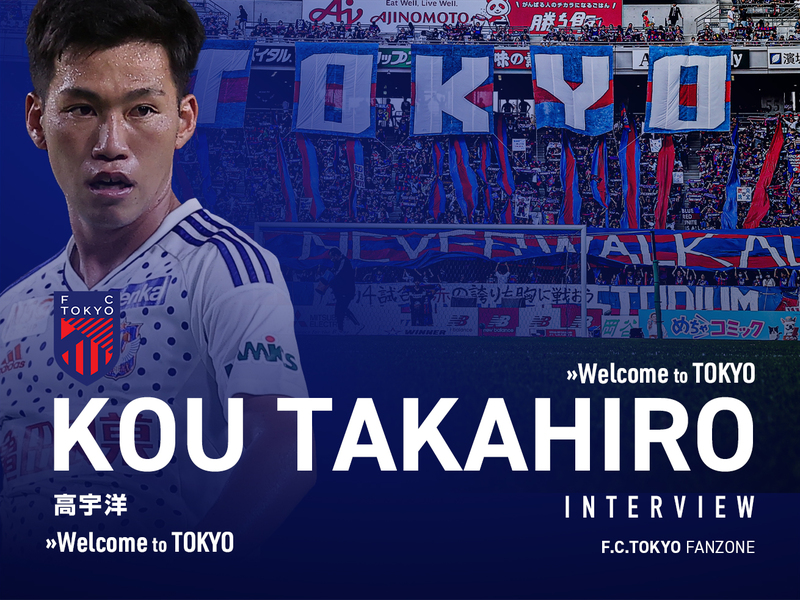Masato MORISHIGE, who finished his 14th season in Tokyo with a double-digit ranking for the first time in six seasons, concluded with, "I only feel a sense of crisis." Having spent half of his life as a professional soccer player, the end of his career is also coming into view. The team's longest-serving player even says, "I don't care what anyone says or thinks." In his summary of the 2023 season, the captain in blue and red expressed words that resembled a painful cry. There lies a strong will to "win."
It was unclear what we were aiming for and what kind of football we were playing.
Q, please review the game and share your honest thoughts about this season.
It was a tough season. That is my honest impression now.
Q: I think we had a good time during the pre-season camp, but after that, we continued to have somewhat unstable matches. What was your impression of the start?
A, including the camp, we had a good sense of progress. The overall atmosphere of the team was good, and since it was the second season under Coach Albert PUIG ORTONEDA, we approached the opening match with the thought, "This season, for sure." We were able to achieve victory against Urawa Reds, but we dropped points in the subsequent matches against Kashiwa Reysol and Kyoto SANGA S. I thought we would gain momentum after winning against Urawa, but I believe we stumbled a bit. The start is indeed important, and not being able to secure wins there was significant. With a record of 1 win, 1 loss, and 1 draw in the first three matches, I think it reflected our abilities and this season.
Q, after that, we entered the Golden Week and continued to lose, welcoming the Tamagawa Classico against Kawasaki Frontale at the Japan National Stadium.
Winning against Kawasaki was, in a sense, a result typical of Tokyo. It feels like a festival; when everyone's motivation is high, we can win. In special games like the opening match or at the National Stadium, we have been able to unite our feelings and achieve results. Winning against Kawasaki there certainly gave us confidence. However, when looking at the content of the match, it wasn't the refinement and high completion of our soccer that led to victory. It was more about the strength of our feelings, such as a sense of crisis and motivation, that allowed us to win in that moment, rather than a sense of accomplishment or the impression that our soccer had matured to earn points.
Q, After the victory in the Tamagawa Classico, we couldn't continue and faced a coaching change with a record of 1 win and 3 losses. What were your thoughts, player Morishige?
Over the course of a season and a half, our approach to connecting the ball gradually became overly cautious, leading to safe decisions only. For example, simply passing the ball around the outside made it easier for the opponent to defend. We lacked solutions from that point, and it often relied too much on individual efforts. Ideas were emerging, such as utilizing the center or sometimes simply kicking the ball, but it became increasingly disjointed, resulting in a lack of unity within the team about what we should be doing, and the results did not follow. I believe we were unclear about what we aimed for and what kind of football we wanted to play.
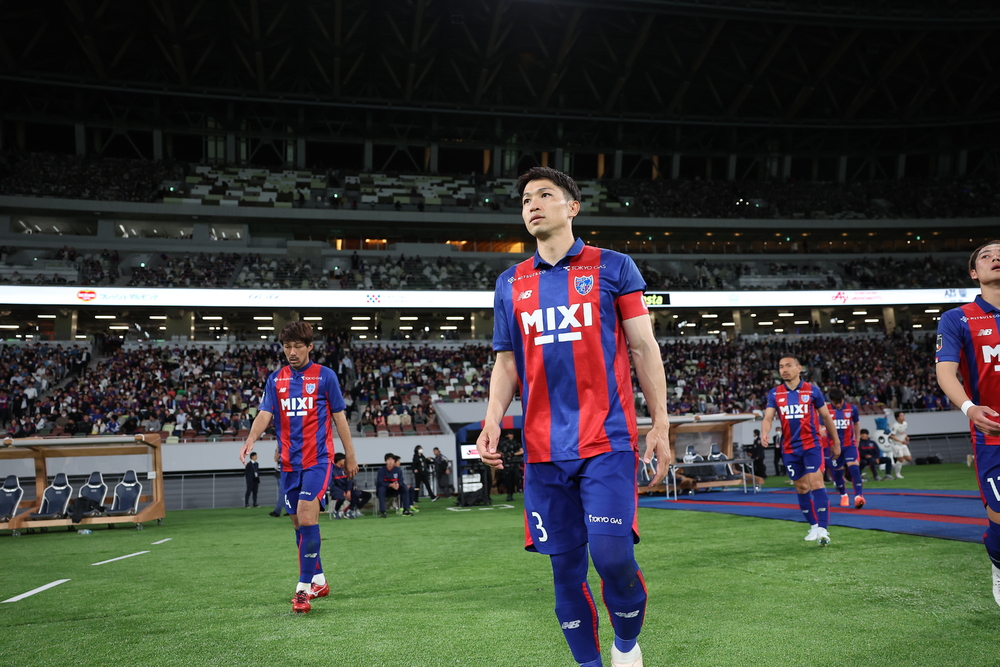
Quality and ideas are needed to score goals
Q, In the early stages of the second half after welcoming coach Peter CKLAMOVSKI, there were signs of gradual improvement. During that time, what went well and where did you feel uneasy?
A, with the decision to change the coach, in the first match, Head Coach Takayoshi AMMA clearly showed what needs to be done again. I believe we were able to thoroughly review the aspects that were not being done in the essence of soccer. Because of that, we were able to win against Kyoto in the group stage of the Levain Cup. After that, with the change to Coach Peter CKLAMOVSKI, we continued to pursue attacking soccer and engaged in high-intensity training. While seeking to play that utilizes that intensity, it was important to first accumulate points. In the early part of the second half of the season, we aimed for a soccer style that could win steadily rather than idealistically, and it left the impression that we worked while being more faithful to the basics and valuing the essence.
Q: The team seemed to be gaining points and improving, but they have not won in the last four matches since the Yokohama F.Marinos game in Sec. 24. What do you think were the factors that prevented them from securing close matches against top teams?
One reason could be that there is no breakthrough strategy. Until now, we were able to overwhelm our opponents with high lines, high pressing, and intensity of play, but against opponents at a higher level or those who defend deeply, we need one or two different ideas and approaches from different angles. We did not have enough options in our play, and I believe that gap has affected our loss of points.
Q, it seems to have been an issue that has persisted since the 2022 season.
In the second half, we focused on overwhelming our opponents with intensity and switching between offense and defense. Even though we aimed to be aggressive, it felt like we still had a limited number of offensive methods and patterns. We advocate for attacking football, but I believe we are still struggling to improve ourselves. I think we need more players who possess the quality and ideas to convert opportunities into goals.
Q: This season, Diego OLIVEIRA has made a comeback, scoring 15 goals. However, there was a significant gap in the number of goals compared to the next player.
A, I think we are starting to have a common understanding of which areas the team aims to target, and where to send the ball if the opponent comes at us in a certain way. The next step is to enhance that reproducibility and increase the number of chances we create. We need to work harder on that, but ideas are essential for our attack. I hope a player emerges who can lead the attack with such ideas.
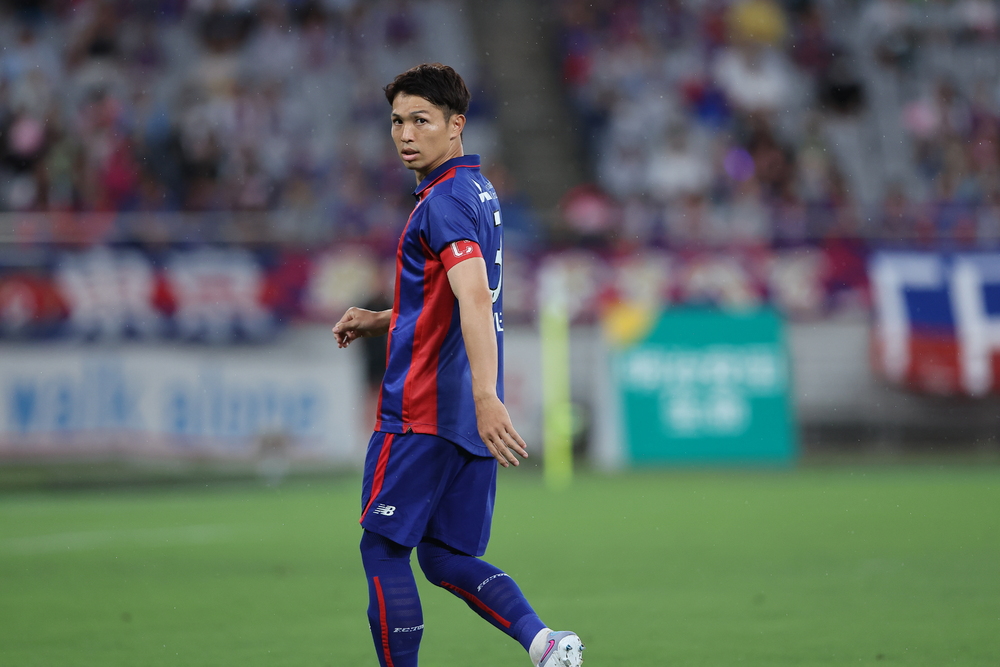
It's just right for young players to be noisy.
Q, I believe that team maturity is essential for that. I think that without conviction, ideas cannot be utilized as a team, rather than just improvisation or mere whims.
There may be parts where the players themselves need to think a little more. Overall, it seems too passive, and there are certain players who are consistently voicing their opinions on what they want to do. It is important to share observations from each position and align opinions to create something good. I, along with Yuto NAGATOMO, who is in the final line, communicate what we see from the back. However, there is an impression that the communication ends up being one-directional, with responses like, 'I see, we have to do that.'
Q, is this part of the issues that Tokyo has been facing?
A, it's not that way. For example, let's say there is a phenomenon where it looks like this from behind. However, while the defensive side may say that, the attacking side or the midfield might think that's impossible, and there should be different opinions. If you don't communicate that, you won't be able to reconcile things forever. Since we play as a team, communication is essential. There must be many things that you absolutely believe are necessary for you to shine and to play better. Instead of keeping those thoughts to yourself, sharing opinions leads to new discoveries and deeper understanding.
If you only do what you are told quietly, you won't become a team. You have to speak up. Of course, each player has their own character. Even without saying it, players who can execute will demand it from the beginning, like Kuryu MATSUKI. They naturally move those around them to make things easier for themselves. To speak without fear of misunderstanding, if you avoid being disliked or avoid exchanging opinions, the conversation won't progress. I believe that only after that can we begin the next stage of alignment and unification of intentions.
Q: During the season, you often communicated with and gave advice to younger and mid-level players.
A, it's just right for young players to be noisy. If they don't lead the team, the team won't have any energy. I think it's strange that we are still playing in matches after all this time. Tokyo has many serious players, for better or worse. There haven't been any standout players for a long time, and I wonder if they are too quiet.
Q: Just as player Morishige, who used to play quietly in his younger days, has started to think and share ideas, it means that even if it takes time, if players do not start to speak up, we will not be able to achieve continuous strength in the future.
A, for example, Nagatomo is someone to be respected. However, respect and being considerate during the match are different. To improve, we must demand more. If it ultimately leads to a decline and we can't play well, soccer won't be enjoyable. If someone can demand what they want and drive the attack, I think that's perfectly fine. Without that, if everything is just a reaction, nothing will come of it. It's our job to maintain balance, so young players should feel free to play as they like. It's okay if they cause trouble for the team; they should play as they think and keep challenging themselves. If they aren't making mistakes or going overboard, I actually find that difficult.
Q: Both player Morishige and player Nagatomo had the impression of playing freely on the pitch when they were younger. I remember how the veterans would smile wryly and clean up after them because they continued to play without hesitation, even arguing with their seniors.
A, that's why it's hard to imagine. It's not fun to play without saying anything, right? In this situation, you must be thinking it would be better to do this or it would be nice if the ball was passed to you. You must be wondering why you're not facing forward or why you can't pass it this way. We need to demand those things from each other. Of course, if everyone just does what they want, we can't win, but for example, if Matsuki starts doing that, it resonates and the people around respond, creating an atmosphere where if we want to play like this, we should support each other more. By demanding each little thing, good soccer can be created.
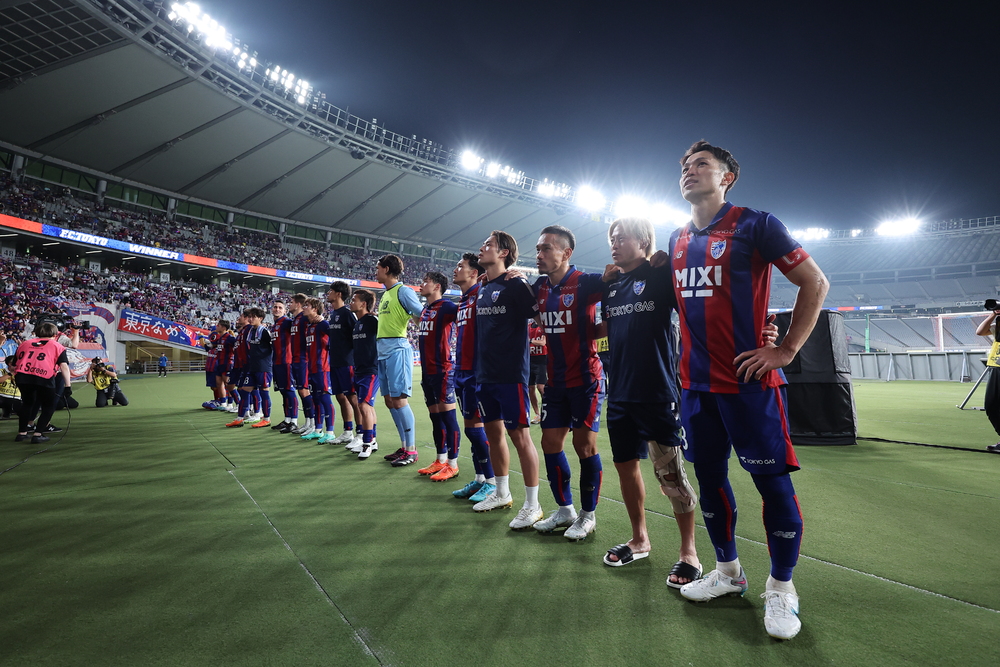
I want to win in Tokyo
Q: Unfortunately, player Morishige's consecutive goals came to an end this season, but we were able to finish with a win against Shonan Bellmare in the final match.
A, I am not concerned at all about the records, and I won't be receiving anything for it (laughs). Although we were able to finish with a win, I need to calmly reflect on this season and analyze it thoroughly. I only feel a sense of crisis heading into next season. To be honest, I haven't gained much confidence from finishing this season. If things continue like this, I can't imagine a bright future ahead. Every season is a competition, and I know that if one gear fits well, the team can perform well. I want to keep pushing forward with a sense of crisis.
Q: How should this team change for the upcoming season?
It is important for the core players to drive the team forward. In that context, since we are advocating an attacking style as our playstyle, everyone must contribute ideas and collaborate on the finer details and situations. With that style, having made the determination to aim for victory regardless of the outcome, we have no choice but to proceed.
Q: Since I threw harsh words during the final home match, I believe I will also be under strict scrutiny myself.
A, I said this with that determination, and I expressed it to put pressure on myself as well. Now, as a team, we need to have a greater sense of crisis. Each individual must take responsibility and think of themselves as a key player in Tokyo when they step onto the pitch. I don't mind what anyone says about me. I am waiting for as many young players as possible to resonate with this. If someone wants to criticize, they can criticize me for saying, 'I want you to do it the way you think.' That’s why I hope the young players will take the lead without fear.
I want to win in Tokyo.
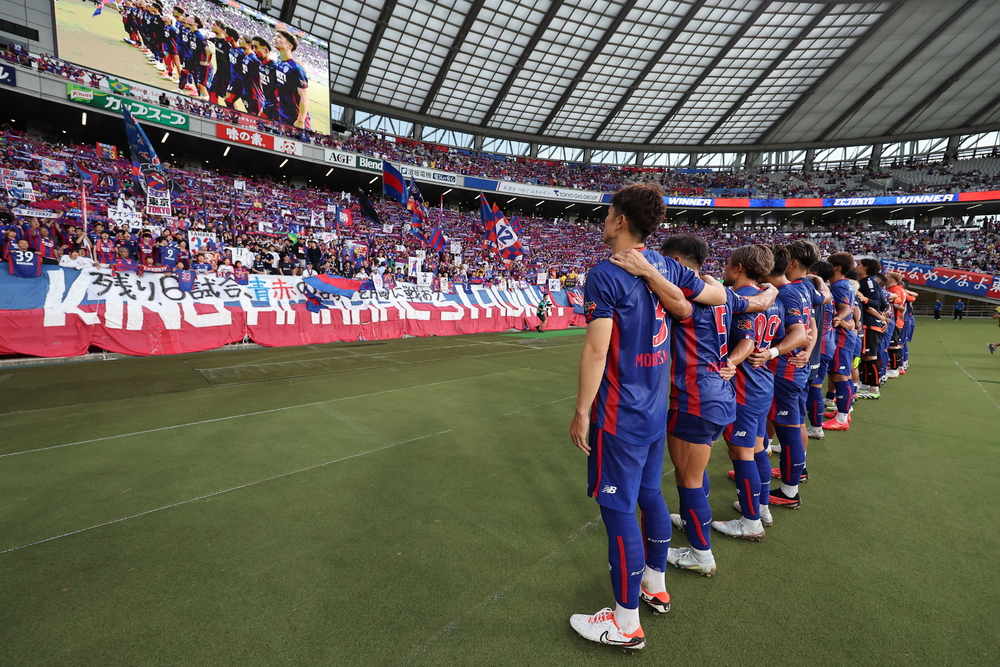
Text by Kohei Baba (Freelance Writer)
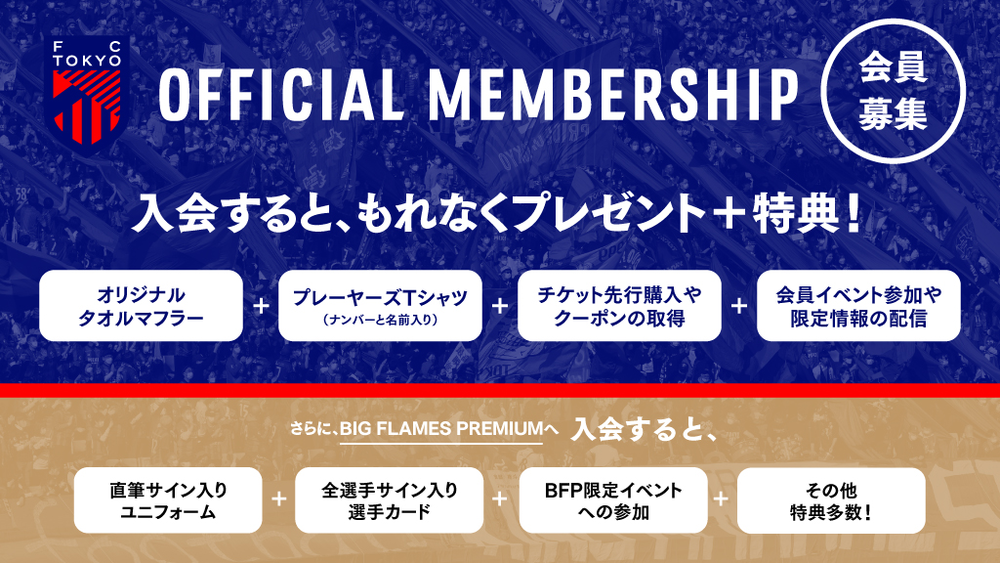
![[2023シーズンレビュー]<br />
森重真人選手インタビュー](/en/upload/Tokyoism/images/detail_img_500_657c126c-cd34-477b-9fd1-0e2e0a000292.jpg)



